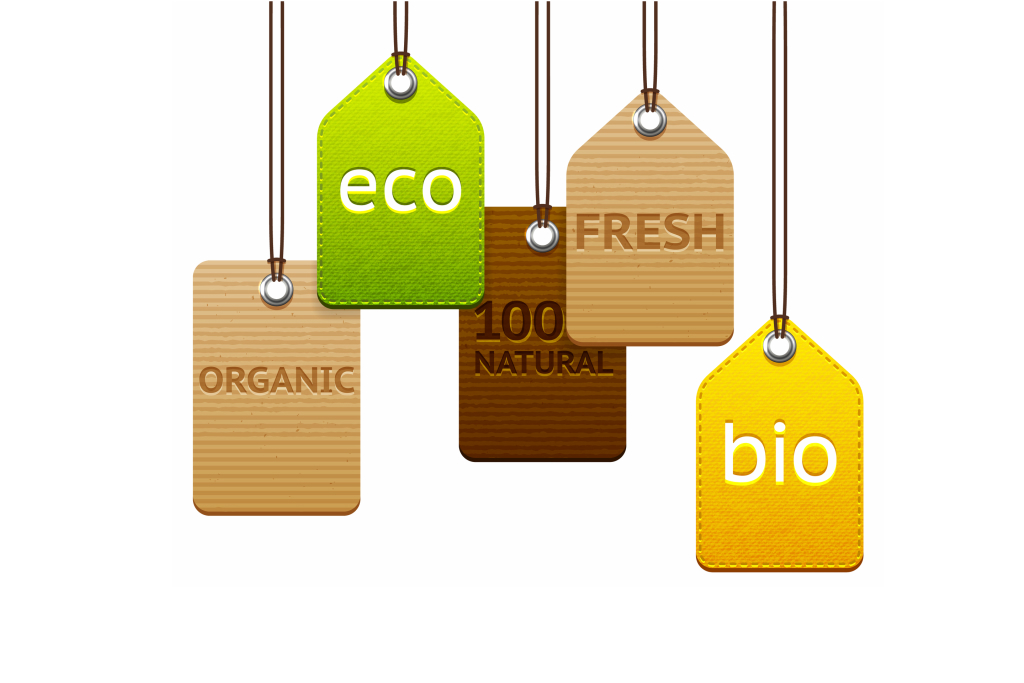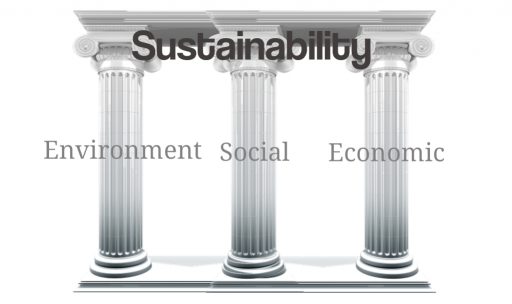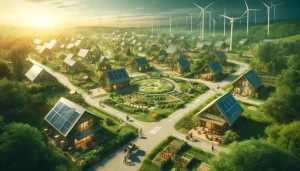Organic vs Green vs Sustainable
Organic vs green vs sustainable, all these terms hints at awareness about environmental and social responsibility.
We often use these terms interchangeably but what’s really the difference?
To clarify this confusion we’ll dive into the between the terms organic, green and sustainable. We describe what organic, sustainable and green products are and show you the difference between them.
Organic Products
Just because a product has the word “Organic”, it doesn’t necessarily mean it meets the high standards set by the United Stated Department of Agriculture (USDA). From a general standpoint the word “organic” can be misleading, leading you to believe that it is ecofriendly but if it doesn’t have a certification then think twice. There are various organizations that certify organic products so look closely at the label.
Look for the Organic Seal
The USDA Organic label is looks like this:
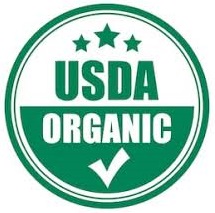
There are nearly 80 USDA-accredited certifying agents that are allowed to certify operations to the USDA organic standards.
There are 47 certifying agencies based in the U.S. and 31 based in outside the US. Most certifying agents are directly accredited by the USDA National Organic Program (NOP).
Additional certifying agents are authorized through recognition agreements between the U.S. and foreign governments.
US based certifying agencies include the National Organic Program, the Washington State Department of Agriculture, the Colorado State Department of Agriculture, to name a few.
Organic Fruits and Vegetables
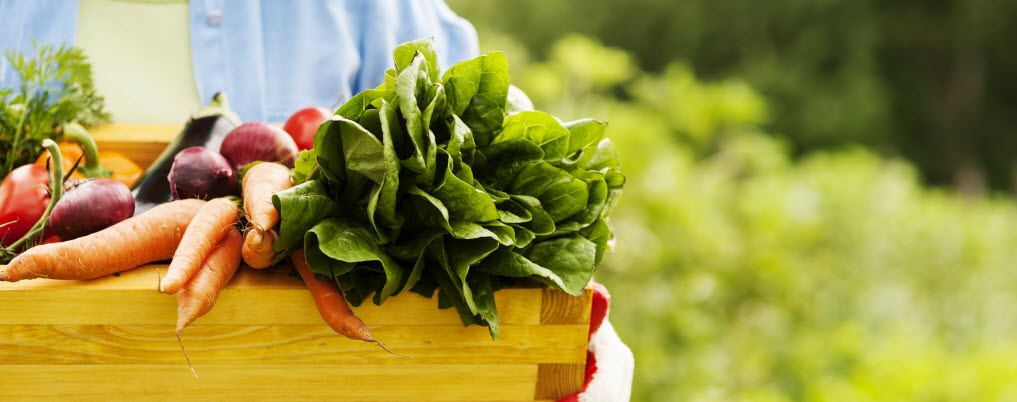
Any product that is made from organic agriculture is known as organic product. Mostly, organic products are food items like vegetables and fruits. It can be said that the term “organic” denotes to the way agricultural products are grown and processed. Standards for growing organic products can vary from one country to another.
In the US, a USDA Certified organic crops must be grown without the use of artificial pesticides, petroleum-based fertilizers, bioengineered genes (GMOs), and sewage sludge-based fertilizers. Vegetables and fruits must be grown with natural fertilizers, with a few exceptions for mined minerals. Pests and weeds also has to be controlled with natural methods and with naturally derived pesticide and herbicides. We’ve got a whole section on growing and eating organic if you want to dive deeper.
Organic Livestock

Any livestock raised under the USDA certified organic seal is fed with organic food. They also cannot be given any antibiotics, growth promoting substances and other animals’ by-products. In addition, livestock must have access to the outdoors.
How Big is the Organic Consumer Spending?
- Americans spent $39.1 billion on organic products in 2014 and in 2019 $47.9 billion.
- From 2018 to 2019 organic product sales increased 5.9 percent.
- Organic products include a wide range of everyday items: food, household products, clothing made with organic fabrics and personal care products such as moisturizer.
Benefits of Organic Food Products
- They are free from harmful artificial pesticides and herbicides.
- Think fresher – because they do not have preservatives.
- Organic food is typically healthy, GMO free and more nutrient rich than their counterparts.
- Food grown organically is produced in a way that is beneficial for the environment.
Green Products
What is a “Green” Product?
- A green product is a product which has less impact on environment and human health as compared to equivalent traditional product.
- Green products take in account the well-being of future generations.
- No product can be 100% green as all products have some impact on environment. It all comes down to the degree of impact a product have on the environment.
- In general, green products have the following qualities:
- Biodegradable
- Energy efficient
- Mostly made up of recycled material
- Contain non-toxic byproducts
- Don’t include ozone depleting chemicals
- Obtained locally (from local resources or people)
Many products have green product alternatives and various green certifications which help in choosing green products. Often, green and eco-friendly are used interchangeably. Organic vs Green vs Sustainable have their differences.
Sustainable Products
How Can You Tell if a Product is Sustainable?
We can define sustainable materials as “the products which provide environmental, social and economic benefits while protecting public health and environment over their whole life cycle, from the extraction of raw materials until the final disposal”.
Sustainability goes a step beyond green products. A sustainable product or practice is not just green or eco-friendly but also conscious about the future.
Sustainable Fashion
Sustainable fashion is a term related to sustainable products. Sustainable fashion simply means a movement and process of fostering change to fashion products and the fashion system towards greater ecological integrity and social justice. It is also known as eco-fashion.
Sustainability Score
We’ve developed a sustainability score to help sort out sustainable products. Many of our products that are review, we look at the wide range of factors that fit into the sustainability definition.
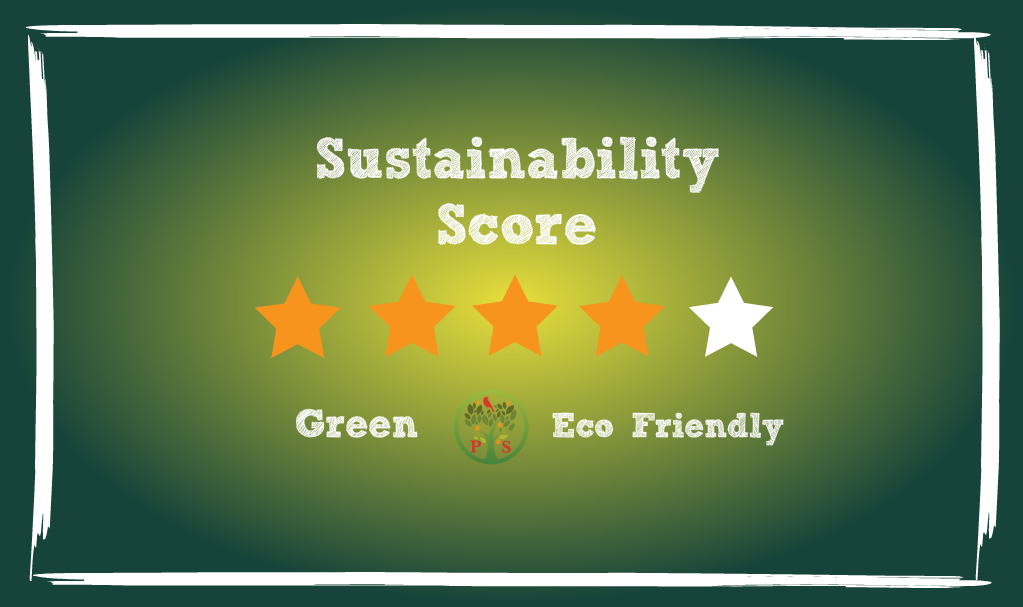
Organic vs Sustainable, what’s the difference?
The differences between organic vs sustainable products can include:
1. A product can be classified as organic and labelled as organic, while on the other hand a product cannot be clearly labelled as sustainable. Sustainable practices are observable and measurable via economic profit, social benefits for the community, and environmental conservation.
2. Sustainable product can be water and energy efficient, while that is not a certifying factor to label a product as organic.
3. Organic certification policy includes restrictive rules about animal access to pasture. Well-being of animals is not a certifying factor in organic farming. In a more sustainable livestock system, a rancher would consider the well-being of livestock and provide ample outdoor space.
4. Packaging of sustainable products are generally ecofriendly, whereas the packaging of organic products are not necessarily eco-friendly. Consider Trader Joe’s – you can buy organic vegetables that are wrapped in plastic wrap!
5. True sustainability ranges beyond basic farming and ranching goals. It extends into management and individual goals and lifestyle choices. The organic certification programs don’t consider full-company or full-farm sustainability. A business that makes sustainability a priority extends beyond the certification rules and limitations
Sustainable vs Green, what’s the difference?
Green and sustainable are often used interchangeably. However, to dive into the differences:
1. Sustainability includes eco-friendly activities and green products, but green doesn’t necessarily mean sustainable.
2. Sustainability mainly sets the focus on the protection of the future.
3. An example includes that if a product is made from renewable resources, it is considered green, yet if a life-cycle analysis shows that it required a lot of energy to manufacture and ship to you, and if there isn’t a proper way to dispose of the product, then it wouldn’t be considered sustainable.
Organic vs Green, what’s the difference?
Organic and green products are often viewed as the same. But are they?
1. A certified organic product means that it is produced by not using any hormones or pesticides or artificial fertilizers in their production. Organic poultry/livestock may not consume artificial feed and cannot receive any GMO-based grains, whereas a green product generally means that it is good for the environment. Green products don’t have the tight requirements that a certified organic product must adhere to.
2. Certified “Organic” means a product or food meets certain regulatory standards. Too bad for us some companies have realized that claiming a product is “green” is a way to sell more, but unlike “Certified Organic” there’s no rule saying that you can’t use the word “organic”, even if your product isn’t. If it doesn’t have a official organic certification labels (such as USDA Organic), then it’s probably just a gimmick.
3. A product that is “organic” must have at least 95% of ingredients that are organic, in it. A “green” product, on the other hand, has no standard, but in general is not damaging to people or the ecosystem.
4. A 100% green product is hard to find, because every product will have more or less degree of impact on the environment (such as through the use of raw materials and energy for its manufacture, transportation, packaging, etc.). On the other hand, a product can be 100% organic. An organic product is green, but a green product is not necessarily organic.
Conclusion
To sum it all up, there is a clear difference between organic, green and sustainable products.
- In case of certified organic products, the manufactured goods must adhere to strict environmental regulations and meet the USDA standards.
- Green is a term used for a product that benefits the environment.
- Sustainability sets the focus on the future. It means the item or action is generating environmental, social and economic benefits, while not using up too many resources or causing pollution.
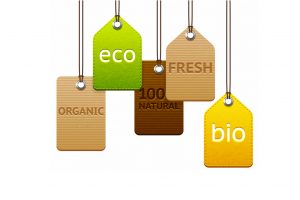
Green
To find out that if a product is really “green” or not is to depend on certifications that are recognized and accredited or green certified.

Organic
In order to recognize organic product, the labels are also present on the products.
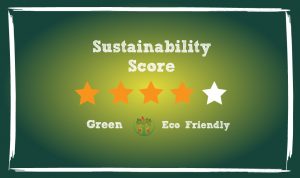
Sustainable
To consider a sustainable product, there is no certification or accreditation, so we have taken it into our own hands and reviewed different green products for sustainability. Checkout our Sustainability Score on products we have reviewed. It’s in our hands to make the decision to be conscious of our buying decisions.
Sustainablilty
In the road to sustainability become aware of your habits and consume organic, green and sustainable products whenever you can. It is better to choose those products that are made from natural and renewable resources requiring the least amount of transportation, and whose end of life respects both people and the environment.
At Positively Sustainable, we are committed to providing information that will help you to make confident choices about the products you buy. We believe in the power of ethical consumerism to hold businesses accountable and make sure that they are manufacturing products in an environmentally and socially responsible way.
Join us on our journey towards a positively sustainable future.

